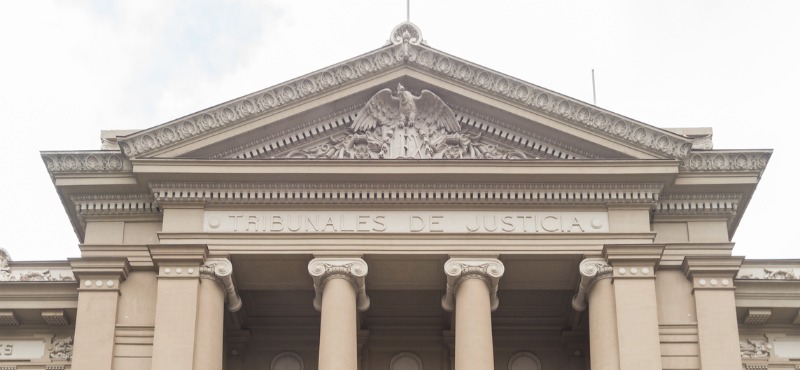The Law that “Amends the Gas Service Law and other legal provisions” (hereinafter, the “New Law”) entered into force on February 9, 2017.
The purpose of the New Law is to fill in the legal gaps existing in a market that, according to the parliamentary discussion, needs to improve the level of competition among their different actors.
Therefore, the New Law introduced significant amendments to Decree Law N°323 and to Law 18,856 which regulated, among other elements, the provision of gas related services (hereinafter, the “Gas Law”).
A brief description of the most significant amendments follows:
1. Free-fare setting with a maximum profitability limit:
According to the New Law, the gas distribution companies subject to concessions granted by the State (hereinafter, the “Concessionary Companies”) are allowed to freely set their fares, provided that the maximum profitability limit referred to in section 2 is observed.
The National Commission of Energy (hereinafter, the “NCE”) is the public entity in charge of monitoring compliance with the maximum profitability limit through an annual profitability check.
The free-fare setting does not apply to Concessionary Companies located in the Magallanes and Antarctic Regions which are subject to a fixed–fare regime.
2. Reduction of the maximum profitability limit allowed to Concessionary Companies:
The New Law maintains the structure of the maximum profitability limit, calculated over the Cost of Capital Rate (hereinafter, “CCR”) which has a minimum profit of 6%.
However, the New Law reduces the profitability spread allowed over the CCR, from five to three percentage points.
As a result, the profitability limit is reduced, by the New Law, from 11% to 9%.
The implementation of the new limit is subject to a transitory and gradual implementation which considers the age of the facilities and related elements described in the transitory provisions of the law.
3. Application of an automatic fixed price regime in the event Concessionary Companies exceed the profitability limit:
Before the New Law entered into force, breaching the maximum profitability limit was only a condition for the submission of a request before the Antitrust Court (hereinafter, “FCC”) as to whether it was proper or not to impose a fixed-fare regime on offending companies.
The New Law, in contrast, provides for a fixed-fare regime process which automatically applies every time the NCE is able to determine that a Concessionary Company has exceeded the maximum profitability limit by more than 0.2%.[1]
The Concessionary Company to which the fixed fare regime is imposed has the right to action before the FCC, in order to return to a free-fare setting regime again. If the FCC considers, following a report by the Economic Prosecutor’s Office, that competitive conditions do exist in the market, it will order the Minister of Energy to declare the end of the fixed-fare regime applicable to the Concessionaire Company.
4. Procedure and methodology to implement fixed-fare regimes:
The procedure and methodology to apply a fixed-fare regime considers two elements (i) the value of gas at the moment of being introduced to the distribution system; and (ii) the additional value for the distribution activity. The first element represents the prices of the sale and transport contracts.[2]
The second element is determined based on the information provided by a real company, but corrected by efficiency requirements, which only considers the costs and incomes that are a direct consequence of the distribution activity. Nevertheless, the cost arising from the connection of new clients to the distribution system will be depreciable within a period of 10 years.
5. Consumers’ compensation mechanism in case a Concessionary Company exceeds the maximum profitability limit:
This mechanism operates by having the Concessionary Company reimburse the excess, which is ultimately distributed among consumers, in proportion to the volume of gas consumed in the last calendar year.
The reimbursement will operate by discounting the correspondent amount from the next bill to be issued by the Concessionary Companies or from those bills determined by the Electric and Fuel Service.
6. Institutional consolidation of the profitability examination, new measure methodology and a three-year extension of the analysis period:
According to the New Law, every four years the NCE will issue a request for tenders to prepare a report which will determine the assets of each Concessionary Company and the efficiency requirements that will apply in the debugging of the operational costs. The annual profitability examination to be carried out by the NCE will be based on the results contained in the report.
In addition, the New Law increases the period to be analyzed during the profitability examination, from one year to movable periods of three years. The profitability during such years will be equivalent to the simple average of the annual profitability obtained during the relevant period.
The New Law allows Concessionary Companies to comment on the preliminary report to be issued by the NCE and, eventually, appeal to the Panel of Experts.
7. An independent institution to resolve the controversies regarding fare issues and profitability examinations (Panel of Experts):
The New Law provides for a Panel of Experts to resolve controversies between Concessionary Companies and relevant authorities. The Panel of Experts is regulated by the Electric Law.
According to the New Law, the Panel of Experts is entitled to resolve controversies regarding: (i) methodology and calculation of the TCC; (ii) annual examination of the profitability results; and (iii) issues related to the tender rules prepared in the context of the tender referred to in section 6 and the results of the different fare procedures carried out.
8. Application of the New Law to no- concessionary gas distribution companies:
The following matters of the New Law will also apply to gas distribution companies not subject to concessions granted by the State:
- The quality and safety requirements regulated by the current legislation.
- Provisions regarding an eventual change of supplier.
- Provisions that impose a ban on agreements between concessionary companies in order to attract or trap clients.
[1] In the event that the excess does not go beyond 0.2% of the profitability limit, the Concessionary Company may choose to stay in the free-fare setting regime by reimbursing 1.5 times the excess, pursuant the rules set forth in section 5.
[2] However, the Concessionary Company may request that NCE (in order to establish the value of the gas at the moment of being incorporated into the distribution system) recognize the market prices at the moment of execution of the relevant contracts.

















